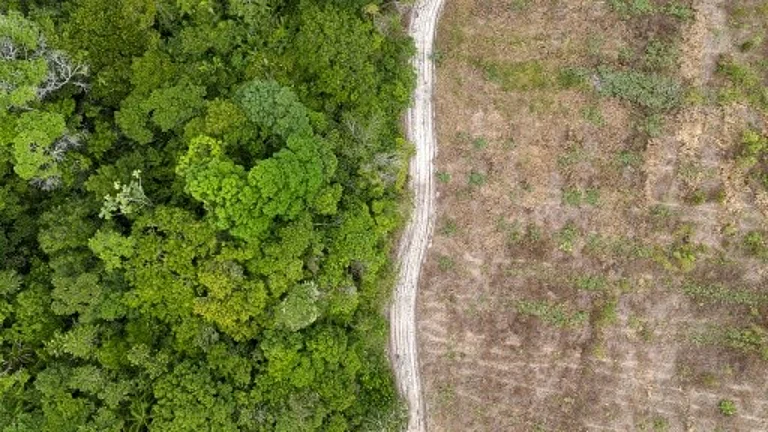A new report published by the Oakland Institute has accused the World Bank of using the pretext of climate action to push a global land reform agenda to prioritise corporate interests over indigenous communities and environmental protection.
Why World Bank’s Climate Push Faces Backlash Ahead of 2025 Land Conference
World Bank faces increasing criticism for its climate-driven land reforms, with concerns over its impact on indigenous communities and the environment
Releasing ahead of the World Bank’s 2025 Land Conference, starting on May 5 in Washington, D.C., the report titled Climatewash revealed that the bank is appropriating climate commitments made at the Conference of the Parties (COP) to justify its multibillion-dollar initiative to “formalise” land tenure across the Global South.
The research indicated that the aim of pushing climate action by the World Bank is to open lands for agribusiness, mining of transition minerals and carbon credit schemes, efforts that could accelerate displacement and ecological harm.
Impact on Land Rights
According to the Climatewash report, the World Bank plans to spend $10 billion on land programmes and pledging to double its annual agribusiness investments to $9 billion by 2030.
These initiatives usually encourage private land titling and market-based systems, weakening traditional land rights. According to DownToEarth, critics say that this approach allows corporations to acquire land while burdening governments into debt, as many programmes are funded through loans.
Frédéric Mousseau, Policy Director at the Oakland Institute and the report’s lead author, accused World Bank of repackaging a long-standing agenda.
"Hijacking the climate crisis, the Bank is attempting to breathe new life into policies that have historically faced resistance from communities," he said.
"Instead of securing land rights, this plan risks enabling land grabs and worsening inequality," Mousseau added.
Drawing on case studies on World Bank programmes from around the world, including Indonesia, Malawi, Madagascar, the Philippines and Argentina, Climatewash documented how the Bank’s interventions are already displacing communities and entrenching land inequality.
It also underscored that the Bank’s efforts to consolidate land for industrial agriculture, mining and carbon offsetting directly contradict the recommendations of the IPCC, which emphasises the protection of lands from conversion and overexploitation and promotes practices such as agroecology as crucial climate solutions.
Commenting on the contradiction between Bank’s rhetoric and actions, Andy Currier, a Policy Analyst and Co-Author of the report, said, "There is a blatant contradiction between the Bank’s narrative of accessing land for climate action and its financing of activities that drive climate change".
As the World Bank prepares to convene 2025 Land Conference, the report calls for a re-evaluation of climate strategies to ensure they protect land rights and prioritise vulnerable communities and not just markets.

